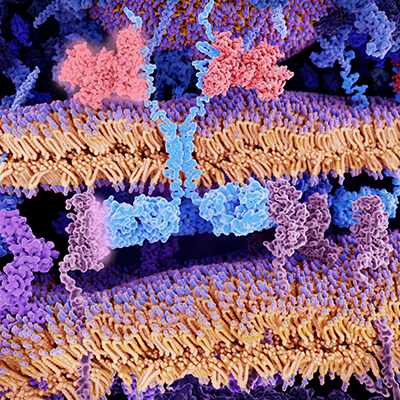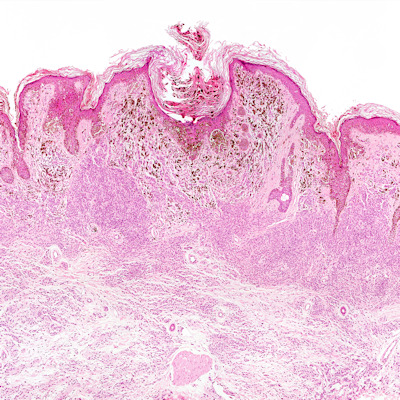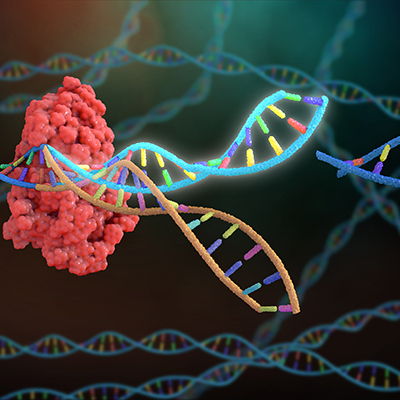 Resistant leukemia treated with base-edited T cells
Resistant leukemia treated with base-edited T cells
Three young patients with relapsed T-cell leukemia have now been treated with base-edited T cells, in an ongoing clinical trial collaboratively conducted by University College London (UCL) and Great Ormond Street Hospital for Children (GOSH). Read More
 BioCentriq, Kytopen expand partnership on cell therapy manufacturing technology
BioCentriq, Kytopen expand partnership on cell therapy manufacturing technology
BioCentriq, a contract development and manufacturing organization specializing in cell therapy, and Kytopen, a Massachusetts Institute of Technology-based startup, on Tuesday announced that they are expanding their partnership. Read More
 Stem cell therapy targets brain metastatic melanomas
Stem cell therapy targets brain metastatic melanomas
Twin stem cells acting in unison may activate the immune system to suppress metastatic melanoma tumor growth in the brain, according to Department of Defense-funded research, published Wednesday in Science Translational Medicine. The procedure prolonged survival in preclinical trials on mice, indicating that locally delivered immunotherapies may be beneficial in brain metastases treatment. Read More
 FDA approves first topical gene therapy for treatment of wounds in patients with dystrophic epidermolysis bullosa
FDA approves first topical gene therapy for treatment of wounds in patients with dystrophic epidermolysis bullosa
The U.S. Food and Drug Administration (FDA) said on Friday it has approved Vyjuvek, a herpes-simplex virus type 1 (HSV-1) vector-based gene therapy, for the treatment of wounds in patients six months of age and older with dystrophic epidermolysis bullosa (DEB) and with mutations in the collagen type VII alpha 1 chain (COL7A1) gene. Read More
 Revvity, AstraZeneca ink license agreement for next-gen base editing tech
Revvity, AstraZeneca ink license agreement for next-gen base editing tech
Revvity this week announced a nonexclusive license agreement with AstraZeneca for the technology underlying a next-generation modular gene editing platform. Read More
 Researchers map RNA to inform selection of stem cells for therapeutic applications
Researchers map RNA to inform selection of stem cells for therapeutic applications
Creating maps of the RNA inside cells could improve cell therapies by enabling the isolation of subsets of cells with similar characteristics, according to a study published Friday in Cell Reports Methods. Read More
 Getting to know the Association of Biomolecular Resource Facilities (ABRF)
Getting to know the Association of Biomolecular Resource Facilities (ABRF)
The Association of Biomolecular Resource Facilities (ABRF) will hold its Annual Meeting May 7 to May 10 in Boston. ABRF is a membership organization that brings together Core facilities across the U.S. and supports more than 2,400 members at over 400 institutions including organizations in government, academia, research, industry, and commercial settings. Over 50% of its members define their area of professional responsibility as either genomics or core administration. Read More
 Bio-Techne fiscal Q3 sales rise 1% on strength in cell therapy, prostate test products
Bio-Techne fiscal Q3 sales rise 1% on strength in cell therapy, prostate test products
Bio-Techne on Wednesday reported fiscal third-quarter sales of $294.1 million, up 1% compared to $290.4 million in the prior-year quarter and short of analysts’ average estimate of $296.7 million. Read More
 Dual CRISPR gene-editing therapy eliminates HIV infections in mice
Dual CRISPR gene-editing therapy eliminates HIV infections in mice
Combining a dual CRISPR gene-editing therapy with antiretroviral drugs can eliminate HIV infections in mice, according to a study published in the Proceedings of the National Academy of Sciences. Read More
 Viral peptides improve CRISPR-Cas gene editing to expand cell therapy applications
Viral peptides improve CRISPR-Cas gene editing to expand cell therapy applications
Scientists have used viral peptides to get CRISPR-Cas gene editing molecules into cells more efficiently and with minimal toxicity, suggesting the method can improve the production of cell and gene therapies. Read More
Conferences
Science Briefs
Member Rewards
Earn points for contributing to market research. Redeem your points for merchandise, travel, or even to help your favorite charity.
Research Topics
Interact with an engaged, global community of your peers who come together to discuss their work and opportunities.
Connect
Tweets by @ScienceBoard






